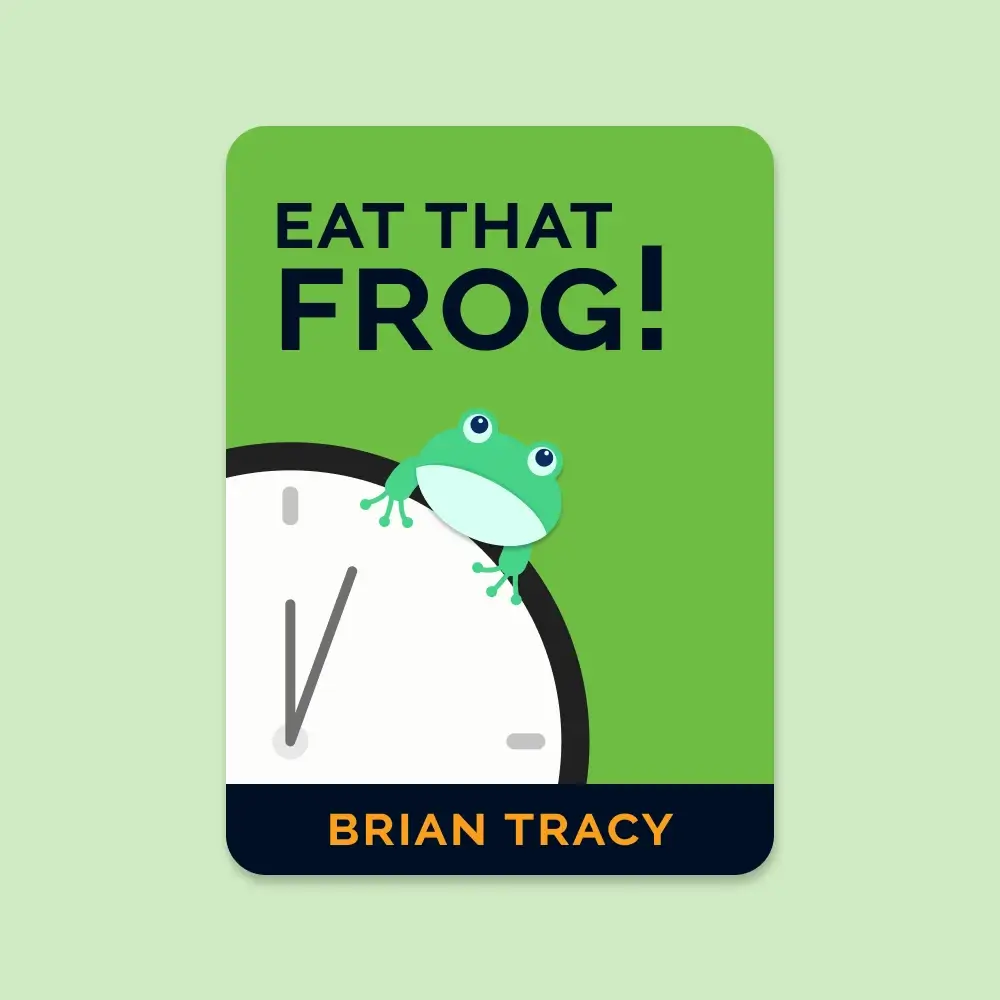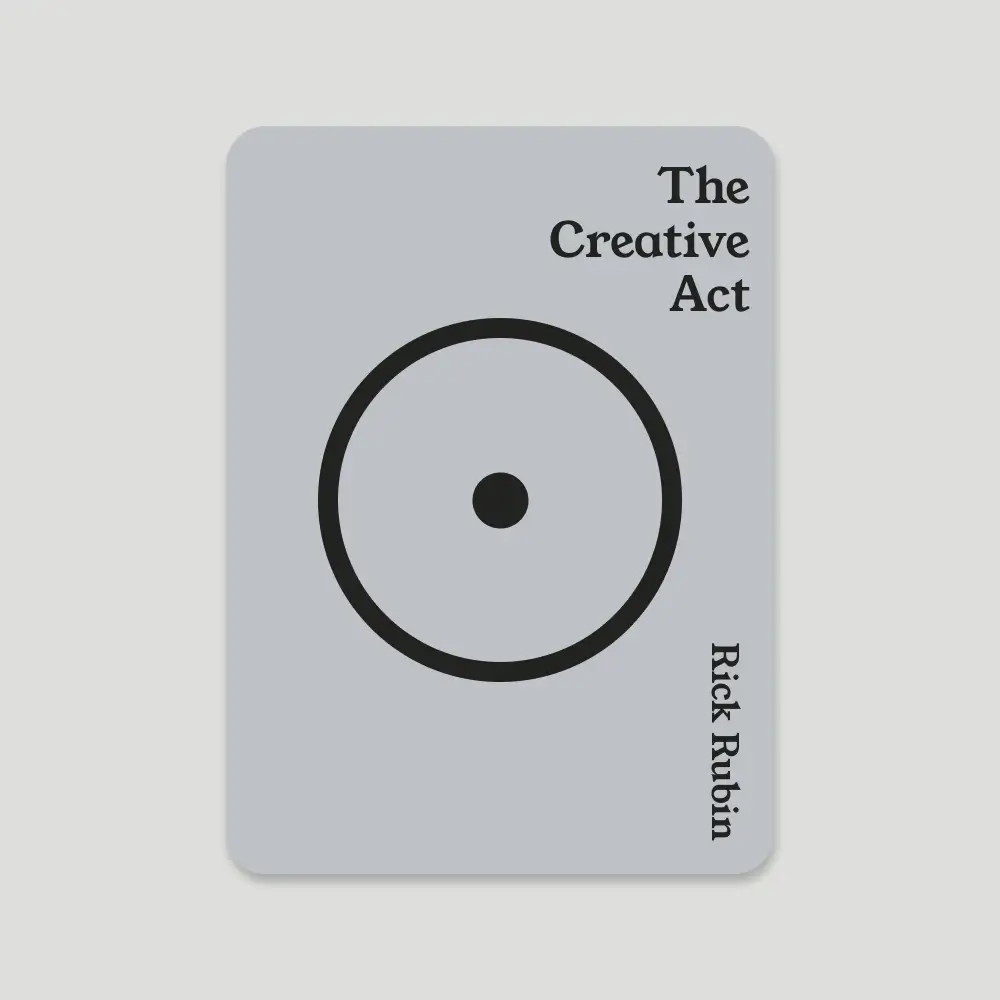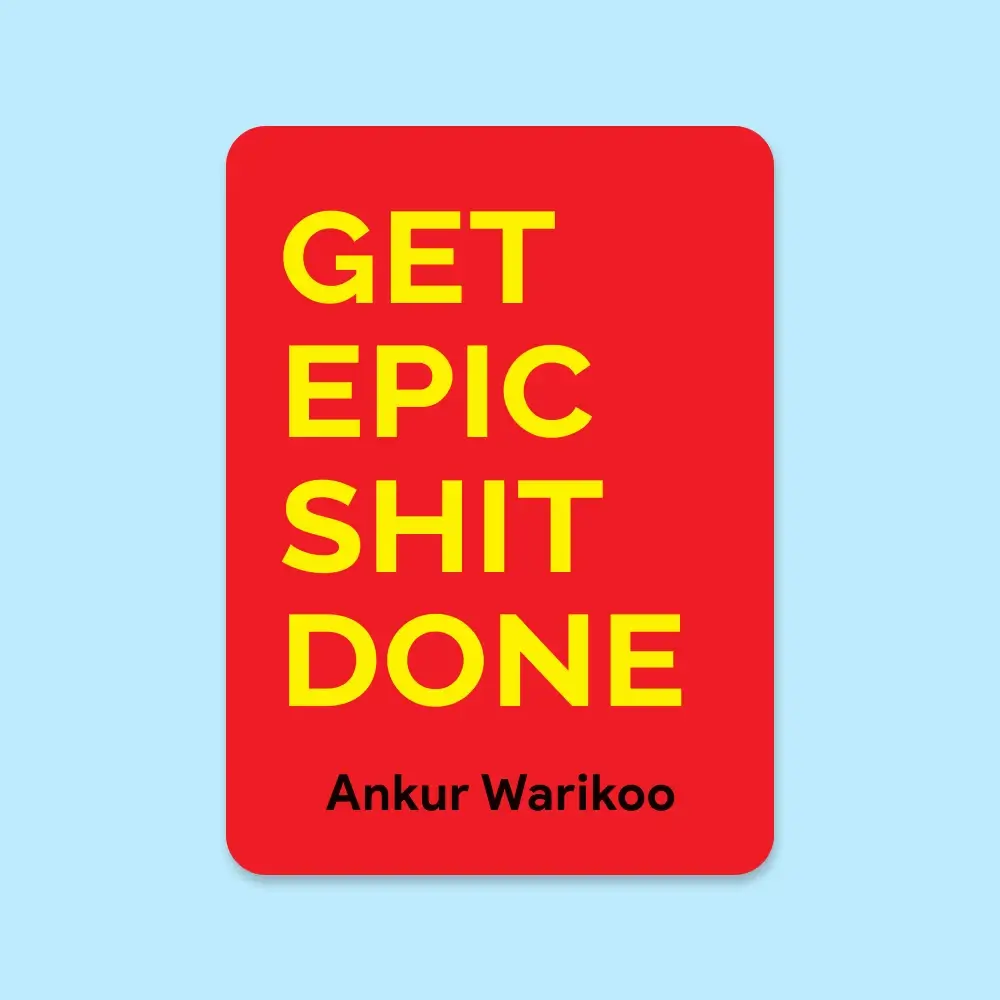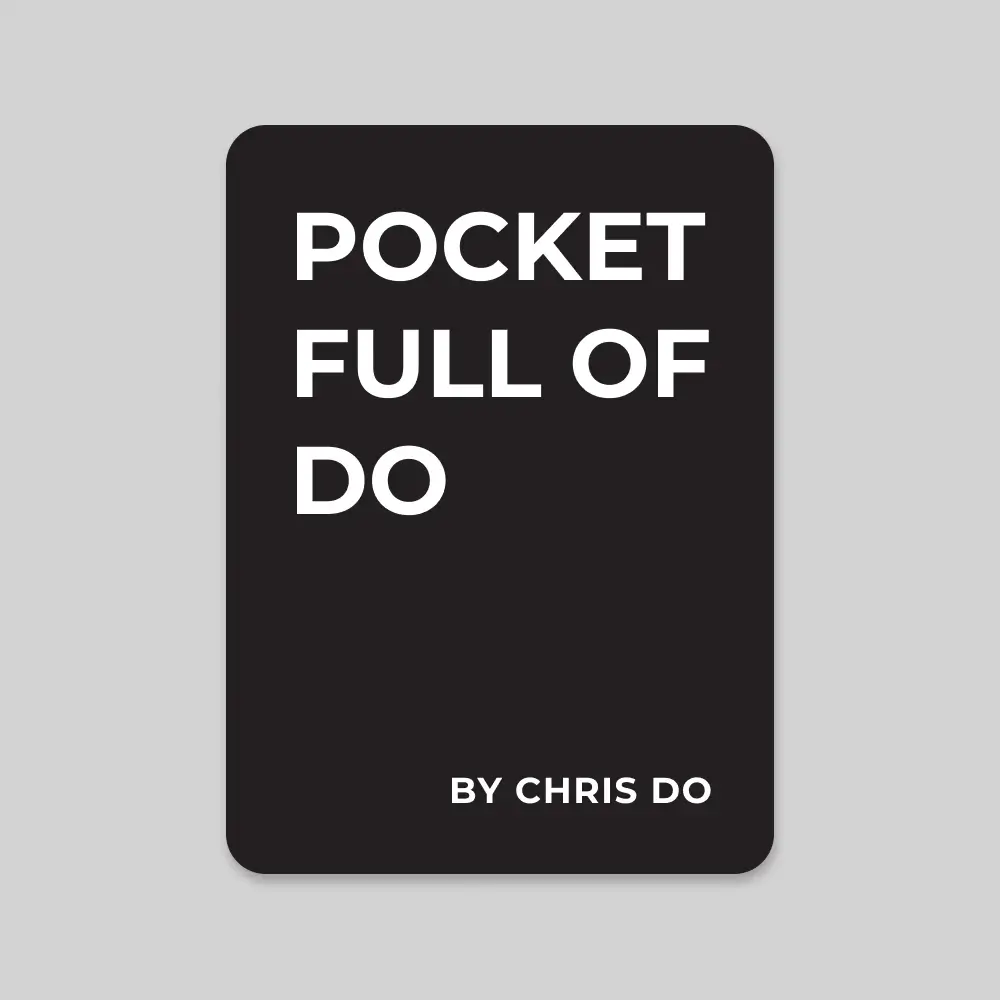
Eat That Frog
-
“You cannot teach a man anything; you can only help him find it within himself.”
-
Your “frog”is your biggest, most important task, the one you are most likely to procrastinate on if you don’t do something about it. It is also the one task that can have the greatest positive impact on your life and results at the moment.
-
The first rule of frog eating is this: If you have to eat two frogs, eat the ugliest one first.
-
If you have two important tasks before you, start with the biggest, hardest, and most important task first.
-
The key to reaching high levels of performance and productivity is to develop the lifelong habit of tackling your major task first thing each morning. You must develop the routine of “eating your frog”before you do anything else and without taking too much time to think about it.
-
The completion of an important task triggers the release of endorphins in your brain. These endorphins give you a natural “high.”The endorphin rush that follows successful completion of any task makes you feel more positive, personable, creative, and confident.
-
Practice is the key to mastering any skill. Fortunately, your mind is like a muscle. It grows stronger and more capable with use. With practice, you can learn any behavior or develop any habit that you consider either desirable or necessary.
-
You need three key qualities to develop the habits of focus and concentration, which are all learnable. They are decision, discipline, and determination.
-
Your mental picture of yourself has a powerful effect on your behavior. Visualize yourself as the person you in–tend to be in the future. Your self-image, the way you see yourself on the inside, largely determines your performance on the outside. All improvements in your outer life begin with improvements on the inside, in your mental pictures.
There is one quality which one must possess to win, and that is definiteness of purpose, the knowledge of what one wants and a burning desire to achieve it. NAPOLEON HILL
-
Clarity is perhaps the most important concept in personal productivity.
-
The greater clarity you have regarding what you want and the steps you will have to take to achieve it, the easier it will be for you to overcome procrastination, eat your frog, and complete the task before you.
-
A major reason for procrastination and lack of motivation is vagueness, confusion, and fuzzy-mindedness about what you are trying to do and in what order and for what reason.
-
Stephen Covey says, “If the ladder is not leaning against the right wall, every step we take just gets us to the wrong place faster.”
-
When you write down a goal, you crystallize it and give it tangible form. You create something that you can touch and see. On the other hand, a goal or objective that is not in writing is merely a wish or a fantasy. It has no energy behind it. Unwritten goals lead to confusion, vagueness, misdirection, and numerous mistakes.
-
A goal or decision without a deadline has no urgency. It has no real beginning or end. Without a definite deadline accompanied by the assignment or acceptance of specific responsibilities for completion, you will naturally procrastinate and get very little done.
-
As you think of new activities, add them to your list. Keep building your list until it is complete. A list gives you a visual picture of the larger task or objective. It gives you a track to run on. It dramatically increases the likelihood that you will achieve your goal as you have defined it and on schedule.
-
Clear written goals have a wonderful effect on your thinking. They motivate you and galvanize you into action. They stimulate your creativity, release your energy, and help you overcome procrastination as much as any other factor.
Planning is bringing the future into the present so that you can do something about it now. ALAN LAKEIN
-
The good news is that every minute spent in planning saves as many as ten minutes in execution. It takes only about 10 to 12 minutes for you to plan your day, but this small investment of time will save you up to two hours (100 to 120 minutes) in wasted time and diffuse effort throughout the day.
-
10/90 Rule. This rule says that the first 10 percent of time that you spend planning and organizing your work before you begin will save you as much as 90 percent of the time in getting the job done once you get started.
-
Creative procrastination is one of the most effective of all personal performance techniques. It can change your life.
When every physical and mental resource is focused, one’s power to solve a problem multiplies tremendously. NORMAN VINCENT PEALE
Do what you can, with what you have, where you are. THEODORE ROOSEVELT
- You must never lose sight of the fact that the reason for working efficiently is so that you can enjoy a higher quality of life at home with your family.
No matter what the level of your ability, you have more potential than you can ever develop in a lifetime. JAMES T. MCCAY
- One of the best ways for you to overcome procrastination and get more things done faster is to have everything you need at hand before you begin. When you are fully prepared, you are like a cocked gun or an archer with an arrow pulled back taut in the bow.
Persons with comparatively moderate powers will accomplish much, if they apply themselves wholly and indefatigably to one thing at a time. SAMUEL SMILES
-
Lao-tzu wrote, “A journey of a thousand leagues begins with a single step.” This is a great strategy for overcoming procrastination and getting more things done faster.
-
Upgrading your skills is one of the most important personal productivity principles of all.
-
A major reason for procrastination is a feeling of inadequacy, a lack of confidence, or an inability in a key area of a task. Feeling weak or deficient in a single area is enough to discourage you from starting the job at all.
Concentrate all your thoughts on the task at hand. The sun’s rays do not burn until brought to a focus. ALEXANDER GRAHAM BELL
-
Between where you are today and any goal or objective that you want to accomplish, there is one major constraint that must be overcome before you can achieve that major goal. Your job is to identify it clearly.
-
The 80/20 Rule also applies to the constraints in your life and in your work. This means that 80 percent of the constraints, the factors that are holding you back from achieving your goals, are internal. They are within yourself—within your own personal qualities, abilities, habits, disciplines, or competencies. Or they are contained within your own company or organization.
-
One of the best ways for you to overcome procrastination and get more things done faster is by working as though you had only one day to get your most important jobs done.
-
To perform at your best, you must become your own personal cheerleader. You must develop a routine of coaching yourself and encouraging yourself to play at the top of your game.
-
When you continually visualize your goals and ideals and talk to yourself in a positive way, you feel more focused and energized. You feel more confident and creative. You experience a greater sense of control and personal power.
There is more to life than just increasing its speed. MOHANDAS GANDHI
Technology is just a tool. MELINDA GATES
-
You must discipline yourself to treat technology as a servant, not as a master. The purpose of technology is to make your life smoother and easier, not to create complexity, confusion, and stress.
-
Many people fail to make technology their servant because they fear learning new skills. This fear can be mastered: refuse to let it hold you back. Everything is learnable, and what others have learned, you can learn as well.
-
Above all else, avoid the phrase “I can’t.” Technology is no longer optional; it is just as important as reading, writing, and arithmetic. And the idea that only certain kinds of people are good at technology is a myth. No matter your age, race, or gender, you have the power to master technology. If you do become frustrated, just remember that it happens to everyone; even expert programmers who are paid hundreds of dollars an hour will sometimes be frustrated by technology.
All of life is the study of attention; where your attention goes, your life follows. JIDDU KRISHNAMURTI
The beginning of a habit is like an invisible thread, but every time we repeat the act we strengthen the strand, add to it another filament, until it becomes a great cable and binds us irrevocably, in thought and act. ORISON SWETT MARDEN
Nothing can add more power to your life than concentrating all of your energies on a limited set of targets. NIDO QUBEIN
Do not wait; the time will never be “just right.” Start where you stand, and work with whatever tools you may have at your command, and better tools will be found as you go along. NAPOLEON HILL
-
When you work on your most important tasks at a high and continuous level of activity, you can actually enter into an amazing mental state called “flow.”
-
When you regularly take continuous action toward your most important goals, you activate the Momentum Principle of Success. This principle says that although it may take tremendous amounts of energy to overcome inertia and get started initially, it then takes far less energy to keep going.



